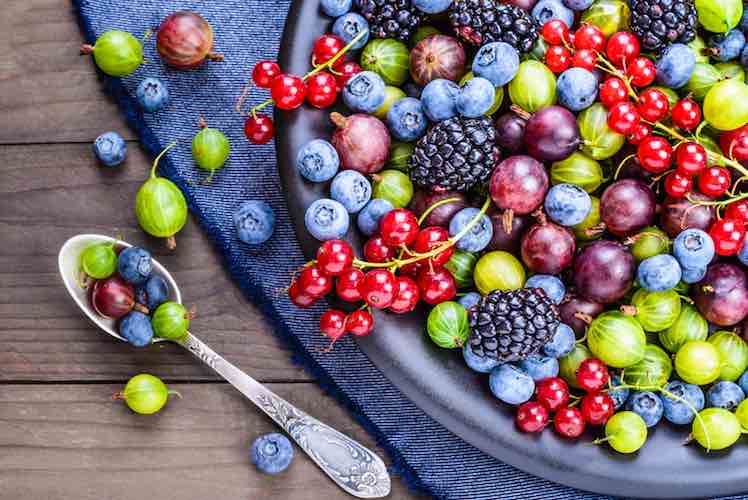- Empty cart.
- Continue Shopping
The Role of Antioxidants in Women’s Health

Antioxidants are compounds that play a crucial role in protecting the body from the harmful effects of oxidative stress, which can lead to various health issues. Women’s health can benefit significantly from the consumption of antioxidants, as they contribute to the prevention of chronic diseases, support overall well-being, and address specific health concerns unique to women.
Understanding Oxidative Stress
Oxidative stress occurs when there is an imbalance between the production of free radicals and the body’s ability to neutralize them with antioxidants. Free radicals are highly reactive molecules that can damage cells, proteins, and DNA, potentially leading to various health problems, including:
- Aging: Oxidative stress is a major contributor to the aging process, leading to the development of wrinkles and age-related skin issues.
- Chronic Diseases: Oxidative stress is linked to chronic diseases such as heart disease, diabetes, and cancer.
- Women’s Health Issues: Oxidative stress can also contribute to gynecological and reproductive health problems in women, including polycystic ovary syndrome (PCOS) and infertility.
The Role of Antioxidants
Antioxidants counteract the harmful effects of free radicals by neutralizing them. They play a protective role in women’s health in the following ways:
1. Skin Health
Antioxidants like vitamin C and vitamin E help protect the skin from UV radiation and pollution, reducing the risk of premature aging, wrinkles, and skin damage.
2. Cardiovascular Health
Antioxidants, particularly flavonoids found in foods like berries and dark chocolate, support heart health by reducing inflammation and improving blood vessel function.
3. Cancer Prevention
Certain antioxidants, such as selenium and vitamin E, have been linked to a reduced risk of certain types of cancer. Antioxidants help combat DNA damage that can lead to cancerous cell growth.
4. Fertility and Reproductive Health
Oxidative stress can negatively impact fertility and reproductive health in women. Antioxidants like Coenzyme Q10 (CoQ10) and folic acid can improve egg quality and overall reproductive function.
5. Bone Health
Oxidative stress contributes to bone loss and osteoporosis. Antioxidants like vitamin C and vitamin K play a role in maintaining bone density and strength.
6. Hormonal Balance
Antioxidants can help maintain hormonal balance, which is particularly important during menopause when hormonal fluctuations can lead to various health issues.
Sources of Antioxidants
A well-balanced diet rich in fruits, vegetables, and whole grains is an excellent way to obtain antioxidants. Some of the key antioxidants and their sources include:
- Vitamin C: Found in citrus fruits, strawberries, kiwi, and bell peppers.
- Vitamin E: Present in nuts, seeds, and vegetable oils.
- Beta-carotene: Found in carrots, sweet potatoes, and spinach.
- Selenium: Obtained from nuts, seafood, and whole grains.
- Flavonoids: Abundant in berries, dark chocolate, tea, and red wine.
- CoQ10: Produced by the body but also available in supplement form.
- Folic Acid: Found in leafy greens, fortified cereals, and legumes.
Supplementation
In some cases, women may choose to take antioxidant supplements to ensure they are getting adequate amounts. However, it’s essential to consult a healthcare provider before starting any supplement regimen, as excessive intake of certain antioxidants can have adverse effects.
In Conclusion, Antioxidants are essential compounds that play a significant role in supporting women’s health by protecting against oxidative stress and its associated health issues. A well-balanced diet rich in antioxidants, combined with a healthy lifestyle, can contribute to overall well-being and the prevention of chronic diseases. For specific health concerns or fertility issues, it’s advisable to consult a healthcare provider or a registered dietitian who can provide personalized guidance on antioxidant intake and supplementation.








